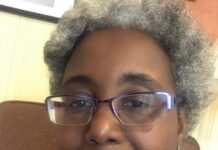The Rhodes Trust has announced the latest class of 32 American students who will study at the University of Oxford as Rhodes Scholars. Being named a Rhodes Scholar is considered among the highest honors that can be won by a U.S. college student.
The scholarships were created in 1902 by the will of Cecil Rhodes, an industrialist who made a vast fortune in colonial Africa. According to the will of Rhodes, applicants must have “high academic achievement, integrity of character, a spirit of unselfishness, respect for others, potential for leadership, and physical vigor.”
In 1907 Alain LeRoy Locke, later a major philosopher and literary figure of the Harlem Renaissance, was selected as a Rhodes Scholar to study at Oxford University. It is generally believed that at the time of the award the Rhodes committee did not know that Locke was Black until after he had been chosen. It would be more than 50 years later, in 1962, until another African American would be named a Rhodes Scholar. That year, John Edgar Wideman, now a famed author as well as a professor at Brown University, was selected. Other African Americans who have won Rhodes Scholarships include Randall Kennedy of Harvard Law School, Kurt Schmoke, former mayor of Baltimore, and Franklin D. Raines, former director of the Office of Management and Budget and former CEO of Fannie Mae. In 1978 Karen Stevenson of the University of North Carolina at Chapel Hill was the first African-American woman selected as a Rhodes Scholar.
This year’s class of Rhodes Scholars was chosen from a pool of 877 students who were endorsed by 305 different colleges and universities. There were 207 finalists from 86 colleges and universities that were selected in 16 different geographic districts. Two students from each district were chosen as Rhodes Scholars. Students can enter the competition in the district in which they reside or the district where they attended college.
Of this year’s 32 American Rhodes Scholars, it appears that five are African Americans.

Robert A. Fisher is a senior at the University of Tennessee at Chattanooga. He is majoring in political science with minors in history and Africana studies. He previously won a Truman Scholarship. Fisher is the student body president at the university and has a perfect academic record. Fisher will study for a master’s degree in comparative social policy at Oxford.
Rachel V. Harmon is from Champaign, Illinois. She is a senior at Cornell University in Ithaca, New York, where she is majoring in industrial and labor relations. Before starting her college career, Harmon was an AmeriCorps volunteer at a rural elementary school in the Mississippi Delta. She plans on studying for a master’s degree in evidence-based social policy at Oxford.
Ridwan Y. Hassen is a senior at Dartmouth College in Hanover, New Hampshire. Hassen is majoring in computer science with an emphasis on neuroscience. He began his college career at Emory University and transferred to Dartmouth after two years. He is the son of refugees from Somalia and Ethiopia. At Dartmouth, he is a member of the Endurance Racing Team. Hassen is planning to pursue a master’s degree in public policy at Oxford.
Tayo A. Sanders II is a senior at the University of Wisconsin-Eau Claire, where he is majoring in materials science. Sanders previously won a Goldwater Scholarship. Sanders has conducted research in the nanomaterials laboratory at the University of Strasbourg in France. Sanders is a triathlete. At Oxford, Sanders plans to earn a Ph.D. in materials science.
Sarah E. Yerima is a senior at Princeton University in New Jersey. She is majoring in sociology. During the summer of 2013, Yerima completed an intensive program in Portuguese in Rio de Janeiro. She will enroll in a two-year, master’s degree program in politics at Oxford. After studying at Oxford, Yerima plans to enter a joint J.D./Ph.D. and hopes to become a professor of law.













Proud of these bright young people.
It is sad though, that their scholarship will be sponsored by resources acquired through genocide, the biggest land grab and displacement of people in Africa. Cecil Rhodes is easily the most contemptible imperialist to ever have lived.
But the world is a funny place…
yes Susan, the world is always presenting bits of irony…
makes me wonder about the driving force behind the incunabulum off Cecil Rhodes idea, after committing such heinous atrocities against humanity. I’m quite sure that these brilliant young people are quite aware of the history behind this unforgivable ingrate’s resources.
Outstanding to see these future academicians and scholars. Represent well. However, I agree with Susan, Cecil Rhodes, was very imperialist.
I am proud of these students.
So proud go you all!
You missed one. There’s a girl from the University of Pennsylvania who was recently announced as a Rhodes Scholar, Rutendo Chigora
No we didn’t. Ms. Chigora is from Zimbabwe not the United States and we reported on it here.
I’m so proud to see these young people achievement; it only makes one wonder the level of achievement this nation would off acquired if black people were left unimpeded to acquire the education our ancestors were so unwisely denied, though sparse as it may seem we continue to defy the subhuman, 3/5 of a man theory that have shrouded us for our duration in this relatively juvenile civilization. The inevitability of achieving the 2/5 off our being that was denied us, will eventually put us on a path off reclaiming and becoming an autonomous power some day; is comforting.
Cecil Rhodes was a despicable human being who paved the way for official apartheid. He raped the land of South Africa and exploited its resources and people. He was a white supremacist and most likely a homosexual who suffered ill health all his life. It is one of history’s great ironies that this bigot’s largesse should be used for the truly noble purpose of educating tomorrow’s world leaders. But that is what the Bible says: The wealth of the sinner is laid up for the righteous (Prov. 13:22). More good news: The Mandela Rhodes Foundation is committed to providing scholarships to African students, for the purpose of “building exceptional leadership in Africa.”
Accepting the Rhodes scholarship is an “in your face” movement to Cecil Rhodes. It is a way that some of the resources he stole are being used to educate wonderful, young, highly intelligent black students. Just think where this world would be if all black students were permitted the resources that white students always had access to.